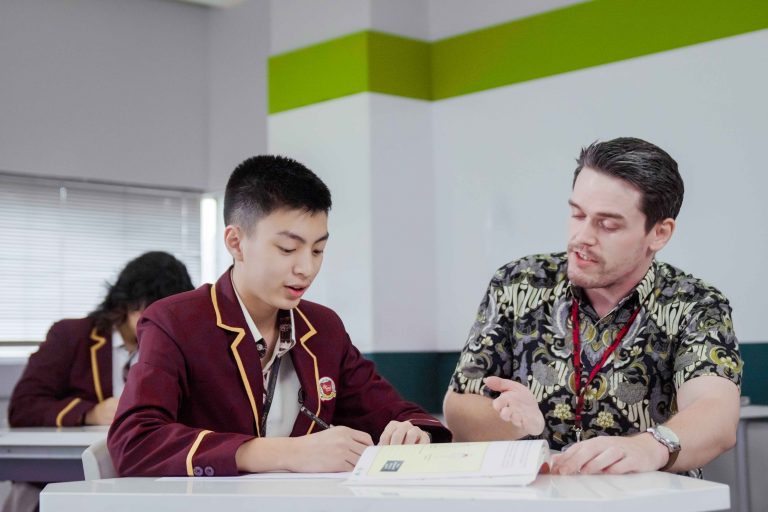IB Environmental Systems and Societies: A Comprehensive Overview

Our actions affect the environment around us, no matter how small, from the products we buy to how we travel.
There’s just the right course, the IB Environmental Systems and Societies (ES&S), that explores the relationship between our environment and the human societies we build.
It could satisfy your curiosity about the natural systems and how they connect with your everyday life, as you’ll learn topics like climate change, biodiversity, and sustainability.
You want to make sense of the world and make it a better place, let’s explore how this course can help you do that!
What are IB Environmental Systems and Societies?
The ES&S course is an interdisciplinary subject within the International Baccalaureate (IB) Diploma Programme, combining social studies and science.
The goal is to explore how humans interact with the natural environment, help students understand real, serious environmental issues, and consider possible solutions from different viewpoints.
Students will examine ecological, socio-political, and ethical perspectives to develop an informed personal response to today’s environmental challenges.
Key Topics in IB Environmental Systems and Societies
Key topics included in the syllabus discuss eight core topics, which cover foundational and advanced subjects of environmental science and social studies:
- Basics of Environmental Systems: Various fundamental ecological concepts.
- Human Populations and Urban Systems: Population dynamics and urban development.
- Land and Terrestrial Systems: Land use and agriculture.
- Water Resources and Aquatic Ecosystems: The management of water and aquatic habitats.
- Natural Resources: The use and management of resources.
- Ecology: The relationships within ecosystems (function and interaction).
- Atmosphere and Climate Change: Atmospheric systems and climate change.
- Conservation and Biodiversity: The value of biodiversity and how to conserve it.
For those taking the course at the Higher Level (HL), additional in-depth studies are focusing on:
- Environmental Regulations: The legal structures designed to preserve nature.
- Environmental and Ecological Economics: The economic aspects of environmental issues.
- Environmental Ethics: Moral principles related to environmental decision-making.
Skills Developed in the IB Environmental Systems and Societies
Besides absorbing necessary information, the IB ES&S course aids students in developing a diverse set of essential skills in this 21st century. They will learn how to:
- Think Critically: Environmental issues from multiple perspectives, including scientific, ethical, and socio-political angles.
- Adopt a Systems Approach: The nature of environmental systems and the interconnectedness of their components.
- Conduct Research and Investigations: In hands-on laboratory and fieldwork to gather data and test hypotheses.
- Communicate Effectively: Written and verbal ideas or arguments.
- Develop Ethical Reasoning: Moral awareness about how environmental policies and actions affect society.
- Collaborate with Others: Work in teams to discuss and solve complex environmental problems.
- Engage with Local and Global Issues: Knowledge of real-world contexts, from local communities to global challenges.
Assessment and Internal Investigations
Assessment blends written exams (External Assessments) and practical work (Internal Investigations).
The former measures students’ knowledge of the Environmental Systems and Societies course content and their skill in adapting ideas to unfamiliar situations.
But what’s engaging is the latter, internal investigation, where you can design and conduct personal experiments, data analysis, or field studies.
This hands-on approach lets you explore real-world environmental issues and develop valuable research skills based on a topic that interests you. That’s why the internal investigation makes up a significant portion of students’ final grades.
In short, this combination of assessments ensures you can show your initiative and passion for the subject, preparing you for further studies or careers in environmental fields.
Why Choose IB Environmental Systems and Societies?
The course is an excellent option if you’re keen on understanding the environment and how societies interact. Other benefits include:
- Interdisciplinary Approach: Science and humanities to explore environmental issues from multiple perspectives.
- Skill Development: Evaluate issues thoughtfully, consider various viewpoints, engage in hands-on projects and investigations
- Real-World Focus: Current challenges to help you understand environmental issues and increase your awareness of the world.
- Flexible IB Credit: Either a science or humanities subject, offering more choices in your IB Diploma.
- Future Preparation: Knowledge and skills valuable for university studies and careers.
- Personal Growth: Reflect on your environmental impact, leading to more informed and responsible choices.
IB Environmental Systems and Societies gives you a fundamental understanding of how we affect our planet and what we can do about it, taking a step towards improving our world.
You’ll learn about real issues and how you can contribute to solutions that matter. If this sounds like something you would enjoy, it’s worth considering.
Also, if you’re curious about other areas of science, the Chemistry IBDP programme might interest you.
It is a perfect chance to deepen your insights and open doors to new experiences. You can learn more by reading BINUS SCHOOL Simprug’s article: Chemistry IBDP: Dive Deeper into the Science.
Sources:
https://www.savemyexams.com/dp/environmental-systems-and-societies-ess/sl/17/revision-notes/

